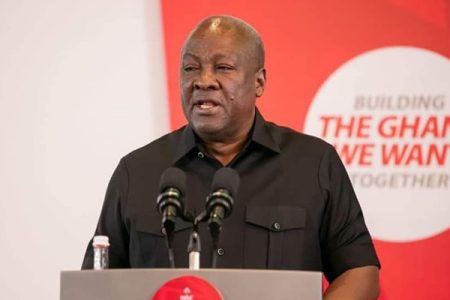As President John Dramani Mahama faces mounting calls to renege on his campaign promise to abolish “nuisance” taxes, a glaring hypocrisy has emerged.
Many of the voices now urging caution—financial analysts, civic groups, religious leaders, and even international bodies like Fitch Solutions—were conspicuously silent during the campaign.
Their sudden opposition raises questions about their motives and the sincerity of their concerns
These pledges formed a cornerstone of his campaign messages, resonating with Ghanaians frustrated by rising living costs.
During the campaign, President promised to scrap several so-called “nuisance” taxes, including the Electronic Transactions Levy (E-Levy), emission tax, betting tax, and COVID-19 levy among others.
However, as the realities of governance set in, people and groups are strangely urging the president to reconsider.
Revenue at stake
According to the Ghana Revenue Authority (GRA), the COVID-19 levy alone generated GH₵1.18 billion in 2022 and saw a 24.7% increase in 2023, collecting GH₵1.14 billion.
The E-Levy’s performance has also improved, with revenue nearly doubling from GH₵640 million in 2022 to GH₵1.19 billion in 2023—a staggering 85.7% increase.
Projections for 2024 suggest that the E-Levy could bring in GH₵2.1 billion, while the COVID-19 levy is expected to fetch GH₵3.1 billion.
The cumulative loss from canceling these two taxes alone is estimated at GH₵6.4 billion in 2025, rising to GH₵8.41 billion by 2027.
The GRA has warned against scrapping the levies, citing their critical role in national revenue mobilization and the need to improve Ghana’s tax-to-GDP ratio to support development.
The risk of reneging
Breaking his promise could damage President Mahama’s credibility and erode public trust, particularly among voters who supported him based on his commitment to ease their financial burdens.
Political analysts caution that such a move could amount to political suicide, fueling disillusionment and deepening skepticism about the reliability of politicians’ campaign pledges.
The leadership test
President Mahama’s challenge lies in balancing the need for revenue with the obligation to fulfill his promises.
Reneging on his commitments would set a dangerous precedent and undermine faith in democratic processes.
To maintain credibility, he must deliver on his tax-cut promises while exploring alternative revenue-generation strategies.
Streamlining tax collection, combating corruption, and fostering economic growth could offset revenue losses.
By implementing efficient mechanisms, such as Point of Sale (POS) systems, to collect VAT and other taxes, the government can enhance transparency and accountability without overburdening citizens.
Global institutions and domestic critics
The critiques from groups like Fitch Solutions and other stakeholders, notably absent during the campaign, underscore the complexity of the situation.
However, their sudden opposition cannot negate the commitments made to the electorate.
Instead, they should work collaboratively with the government to identify sustainable solutions.
A defining moment
President Mahama faces a pivotal decision that will define his leadership and legacy.
Keeping his promises would demonstrate integrity and a commitment to the social contract he signed with the people. Conversely, breaking his word could weaken his administration’s standing and erode public trust in Ghana’s political system.
In this moment of reckoning, bold and transparent action is essential.
By honouring his campaign pledges and prioritizing the well-being of Ghanaians, President Mahama has the opportunity to strengthen democracy and pave the way for a more prosperous and equitable future.
By Elvis Darko, Accra
- Friday, May 9, 2025 Newspaper Headlines - 9 May 2025
- Adangabey brightens rural kids’ future from his wheelchair - 9 May 2025
- Stanbic donates ICT equipment to UHAS for digital learning - 9 May 2025

